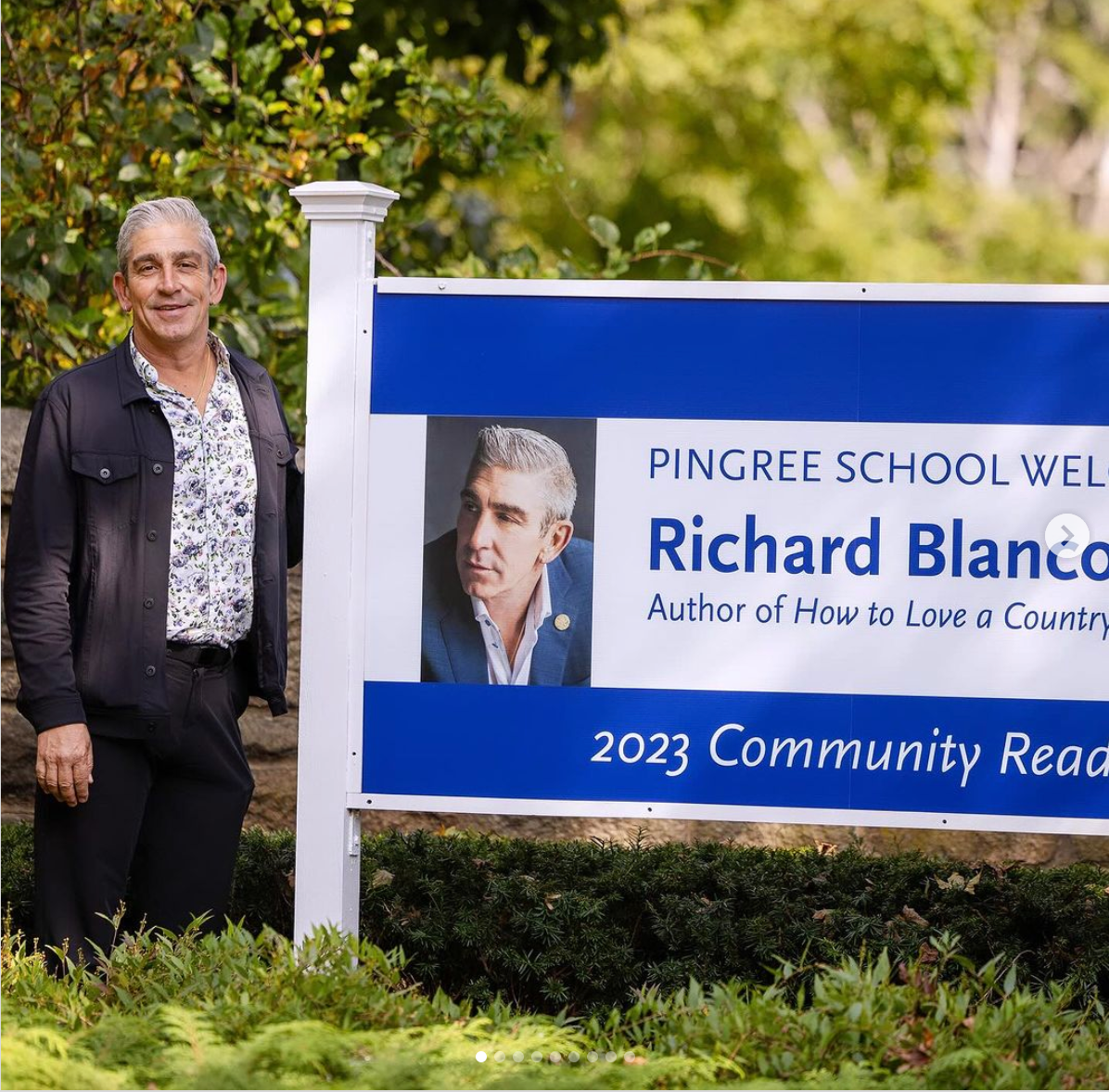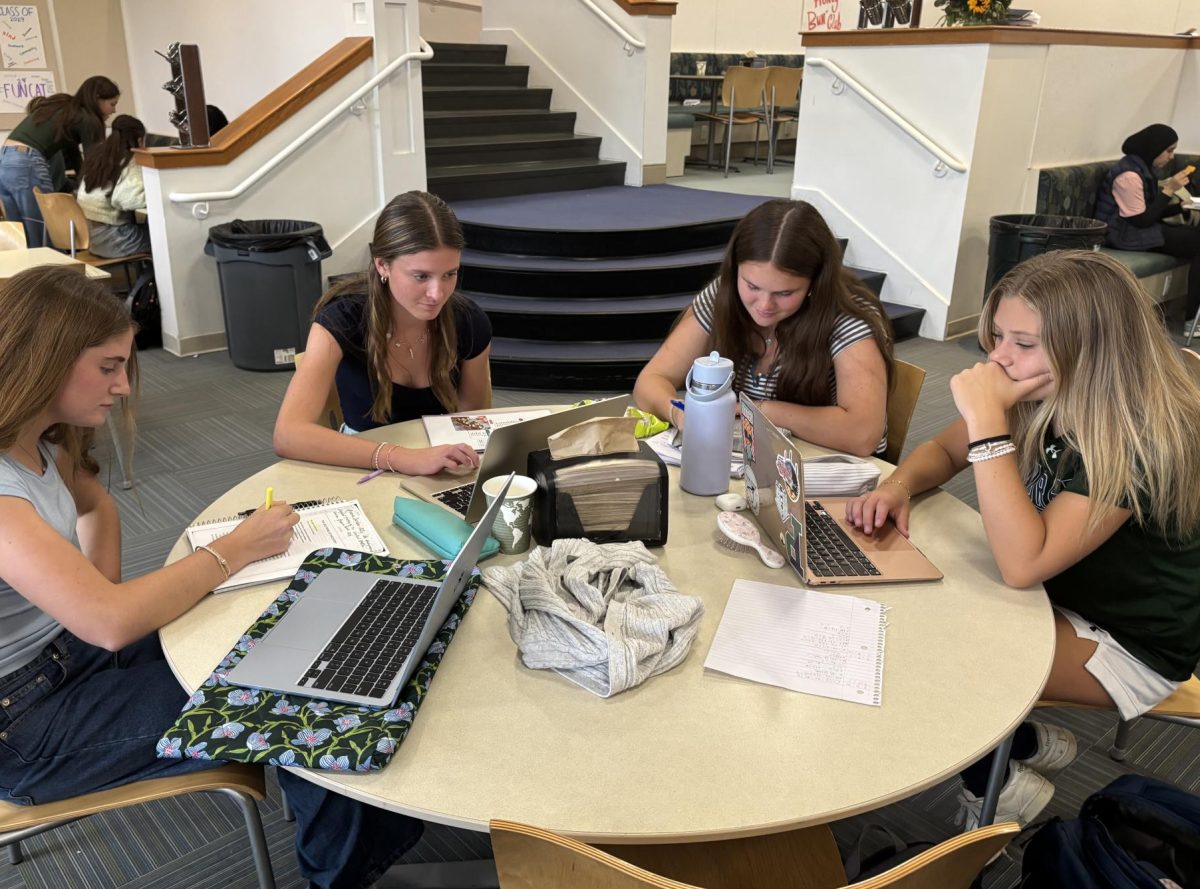Richard Blanco, the author of our community read How to Love a Country, came to Pingree on September 28th to talk to students, faculty, and staff about his book and work as an author. Although you may not know it at first glance, as a poet, Richard Blanco has come a long way in his storied care
Blanco was born in Madrid and raised in Miami, to parents who were Cuban immigrants. After receiving a degree in civil engineering from FIU, he began his career while writing poetry on the side. His works reflected upon his identity as a gay, Latino man with Cuban heritage. His first book, City of a Hundred Fires, won the Agnes Lynch Starett Prize after it was published in 1998. He continued to write other incredible works, winning various prizes and impacting thousands with his books. In 2013, Blanco was named to be the inaugural poet for President Barack Obama.
I sat down with Richard Blanco to learn more about his story and writing, especially with regard to our community. Since he is such a successful figure, I wondered what it took for him to get started. Unlike what most people would believe, Richard Blanco started writing poetry relatively late, as he went into college wanting to be an engineer.
“I found poetry as something to mess around with in my downtime,” he stated, noting that he wanted poetry as something to “add to life”. Following his curiosity, he eventually joined a program at his college, and to graduate he needed to publish a manuscript. “Eventually, one of my collections got an award and got published.” This became his first book. For writers looking to get into the world of poetry, he recommends “[taking it] step-by-step, with small baby steps.” Blanco emphasized to me that it took patience to even create a manuscript.
In his poems, Richard Blanco covers themes of his unique Latino identity, expressing his joys and grievances through his work. Blanco stated during his talk that he wanted everyone to see themselves in his poems. This stood out to me. I caught up with him about this, asking what he wanted our community to take away from his writing. “First off, I want to empower any student or faculty or whomever that reads [How to Love a Country], or any of my books.” On a larger scale, Blanco urged people to simply “open up dialogue about these public issues,” telling me that he wrote his books to be conversation-starters and eye-openers. Ultimately, Richard Blanco wants his work to be a “home,” a place where love and joy is found, but also hard conversations take place.
As I spoke with Richard Blanco and learned more about him, one thing was clear. His work is for everybody, and with an open mind anyone can find solace and comfort in the lines of his books. For aspiring writers and poets, Blanco tells them to “let go of fear” and to “write as if no one will read it.” I think this advice applies to anyone who wants their voice to be heard, and he represents what one person can be when they are brave.








